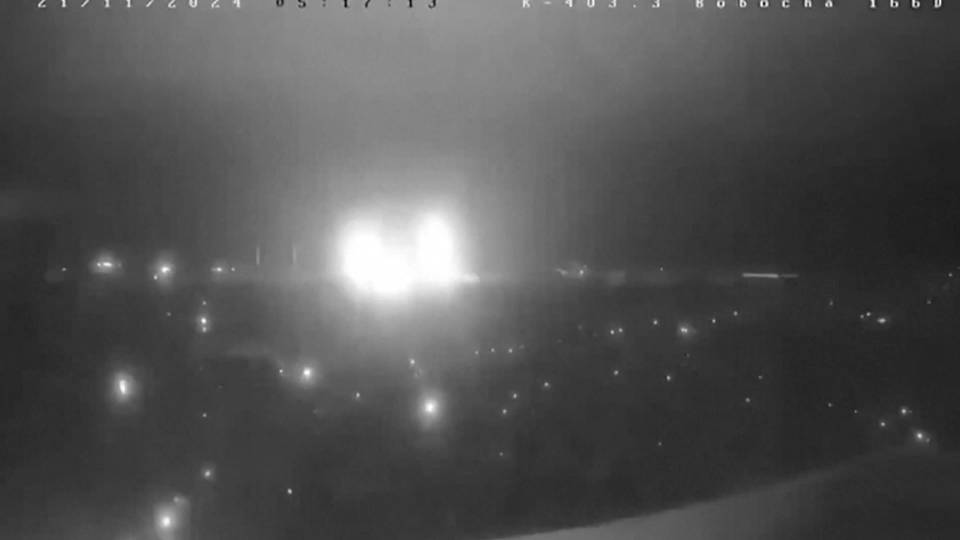Russia’s deployment of hypersonic ballistic missiles in Ukraine marks a chilling escalation in the war. What does this mean for global stability?
The Hypersonic Threat: Redefining the Ukraine Conflict
In a dramatic escalation, Russia has deployed its new “Oreshnik” ballistic missiles, striking key infrastructure in Dnipro. Capable of reaching speeds up to Mach 10, these hypersonic missiles are virtually immune to interception, raising fears about their impact on global conflict. Ukrainian officials report that the missile carried a MIRVed payload, a technology often associated with nuclear warfare, though Russia denies these claims.
The Strategic Implications
This missile strike is not just a tactical move—it is a statement. By using advanced IRBM technology, Russia showcases its military superiority, potentially outpacing NATO’s defensive capabilities. President Putin has openly warned that the conflict now has “global dimensions,” with the possibility of targeting nations aiding Ukraine militarily.
What Is the Oreshnik?
- Speed: Up to 12,000 km/h, making it nearly impossible for current air defenses to intercept.
- Payload: Likely equipped with multiple warheads, enabling simultaneous strikes on multiple targets.
- Launch Site: Deployed from Kapustin Yar, over 800 km from the target zone.
These characteristics make the Oreshnik a powerful tool in Russia’s arsenal, effectively neutralizing Ukraine’s air defense systems and signaling a potential shift in global military strategies.
Ukraine’s Position: Under Increasing Pressure
Ukraine continues to face relentless Russian advances, with strikes targeting critical infrastructure like missile factories and industrial hubs in Dnipro. Kyiv’s forces, already stretched thin, must now contend with a weapon that significantly alters the balance of power. Efforts to counteract the Oreshnik remain uncertain, even with Western support.
Global Repercussions
Russia’s actions send a clear warning to NATO and the West: the stakes are higher than ever. By showcasing its hypersonic capabilities, Moscow raises questions about the effectiveness of current defense systems and the potential for further escalation. Putin’s rhetoric about striking nations supplying Ukraine adds another layer of tension, hinting at the possibility of a broader conflict.
As the situation unfolds, the world watches anxiously. How should nations respond to this new era of warfare? Share your thoughts in the comments






